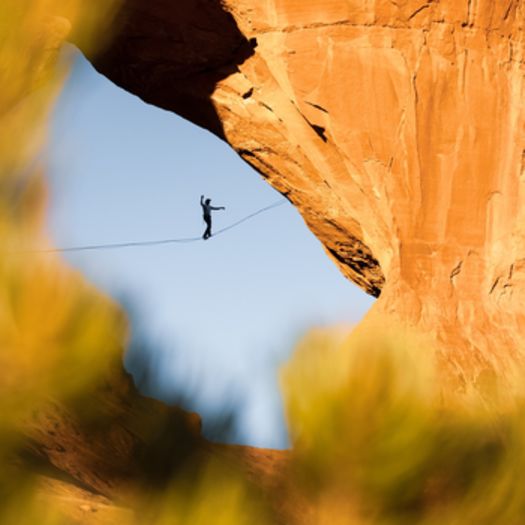No one likes to think about things that could go wrong during a dog-friendly RV trip in the great outdoors, but accidents can happen. From encounters with wildlife or poisonous plants to injuries from falls, bites and stings, the natural environment can pose a danger to both humans and pets. Below are some common situations you may encounter during a camping trip with your dog and tips for how to be prepared to respond to them
Plan Ahead
If an emergency situation arises when you and your pup are in the middle of the wilderness, having access to basic supplies is crucial. Keep a pet emergency kit inside your RV or with your camping gear so that it’s with you on every trip. Also, be sure that Fido is equipped with the proper gear for the weather conditions and camping activities you are planning to enjoy. If you are traveling in an environment different than what your dog is accustomed to, allow plenty of time for your pup to get acclimated before venturing out. Lastly, be sure to keep Fido well-hydrated during a camping trip, and always keep extra water on hand when going on hikes (even short ones) with the family pet.
Wildlife Encounters
It’s only natural for canines to be curious about other critters lurking in the wilderness, which is why it’s important to keep them on a leash or in an enclosed area while camping. If your pet does happen to encounter a dangerous animal like a poisonous snake or an agitated porcupine, you’ll need to seek immediate veterinarian care for any bites or wounds. You can browse BringFido for local veterinarian offices and the closest after-hours facilities in case of a late-night or weekend emergency. Even if you believe the animal your dog encountered is non-venomous or rabies-free, you should still seek immediate veterinarian care if your dog was bitten or wounded in any way during the altercation.
Insect Bites and Stings
Just like a swarm of angry bees or an abundance of mosquitoes can ruin your camping experience, insects can put a damper on your pup’s good time, too. Be sure he’s up to date on a monthly heartworm preventative and protected against fleas and ticks before setting out.
Getting stung by a bee or wasp or stepping onto a mound of fire ants isn’t fun for Fido, but in most cases applying a sting relief pad or giving him a vet-recommended dosage of an antihistamine will help alleviate pain or itching. However, if your pup has a reaction to a bite or sting that causes heaving breathing or panting, severe swelling or vomiting, get him to the closest veterinarian as quickly as possible.
Heat Stroke
Camping in the outdoors comes with plenty of environmental risks, and canines who love to play outside may not know their limits. If you notice your pet is drooling excessively, heavily breathing, showing signs of weakness or confusion, vomiting and has discolored gums, he may be experiencing heat stroke. Seek veterinarian care Immediately, but as you do, be sure to move your pup out of the sun and into a cool environment. Apply room-temperature wet cloths to his neck and armpits. If possible, rewet and reapply the clothes every few minutes and avoid using cold water.
Poison Control
If Fido finds a particularly tasty plant to munch on or sniffs out last night’s s’mores remnants in the trash, immediately contact the ASPCA Animal Poison Control Center at (888) 426-4435. Experts are on hand 24/7 to provide you with potentially life-saving information and direct you in the next steps. A consultation fee may apply. A full list of poisonous plants and foods can be found on the APCC website.
Injuries Needing Immediate First Aid
If your pet suffers a leg injury, be sure to keep him as quiet and stable as possible. Try to stabilize the affected area without causing further damage while you get him to the vet. If your pet is in pain, a muzzle may be necessary to keep him from biting. Consider keeping one in your pet emergency kit for this reason.
For a bleeding wound, use a clean cloth or towel to apply pressure for at least three minutes before checking to see if the bleeding has stopped. If the wound is severe, continue applying pressure and adding layers of cloth while you seek veterinary care.
If your pet is not breathing, open his mouth, gently pull his tongue out and check for any objects blocking the airway. If the airway is clear, perform rescue breathing by holding his mouth closed with your hand and breathing directly into his nose until you can see his chest expand. Once his chest expands, continue providing 10 breaths per minute until he’s breathing on his own or you arrive at the vet.
If your pet’s heart has stopped, perform pet CPR immediately. If you’d like to learn pet CPR, sign up for an online class through the American Red Cross.
Missing Pets
Before traveling with your pet, make sure he is equipped with proper identification on his collar and is microchipped. If he decides to take an adventure on his own in an unfamiliar setting, first contact the campground or camp host to let them know. Notifying fellow campers to keep watch can also be beneficial. Next, contact the microchip company and report your pet missing. This will alert others in your area to be on the lookout. Place his bed, blanket or items that smell like you at your campsite in case he returns on his own. It’s also important to have up-to-date photos of your pet available to share, so be sure to start each camping trip by taking a photo of your good boy or girl.
Natural Disasters
If you’re camping in an area prone to natural disasters like hurricanes, tornados or flooding, pay close attention to the predicted forecast. In an emergency like a wildfire or flash flood, knowing what to do and where to go quickly could save the lives of both you and your pet. BringFido has established a four-step checklist to help pet parents be prepared in the event of a natural disaster. Taking steps ahead of time to be prepared will help you and your pet to remain calm when an emergency occurs.
Just like at home, pet emergencies can happen on RV adventures. Be prepared, then relax and enjoy the trip.











